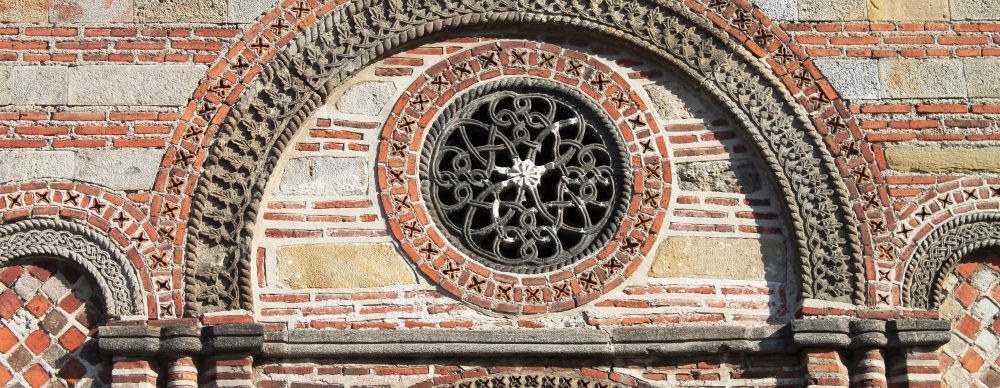30-31 May 2024
International conference: The Byzantine presence between Black Sea and Baltic: political, ecclesiastical, and cultural trends in late medieval East-Central Europe
This international conference aims to address the issue of Byzantium’s political and cultural impact on the region of present-day Poland, Lithuania, Belarus, and Ukraine. What kind of interests, interest-groups and beliefs were in play in the interactions between Byzantium and its northern neighbours? Themes to be addressed in these territories include:
- The attractions of Byzantine Soft Power, its export and local reception;
- The Byzantine empire’s need for military aid and material support;
- Relics diplomacy;
- The role of the patriarchate of Constantinople in creating new
ecclesiastical structures; - The Byzantine contributions to Church Union;
- Commercial networks and Italian traders
- The long-term legacy of Eastern Christendom in the lands of the Crown of Poland and the Grand Duchy of Lithuania
For further information and to register, please contact: Darius Baronas darius.baronas@istorija.lt
12 January 2024
“The Air is Full of Evil Spirits”: Demonology, Confessional Polemics, and Crisis of Knowledge in Early Modern Ukraine, presented by Dr. Maria Grazia Bartolini, Associate Professor of Medieval Slavic Culture, University of Milan
The 2024 Cambridge Postgraduate Workshop in Medieval and Early Modern Slavonic Studies, presented under the auspices of Cambridge Ukrainian Studies and the Slavonic Studies Section, Faculty of Modern and Medieval Languages, University of Cambridge will take place on Friday, 19 January 2024.
All interested postgraduate students and scholars in medieval history and culture are welcome to apply. To apply, please send a brief CV (one page) and statement of interest (no more than 500 words) to Dr Olenka Pevny, University of Cambridge (ozp20@cam.ac.uk) by Friday, 12 January 2024.
The seminar will be held from 11.00 to 15.00 in the Oriel Room, The Pitt Building,Trumpington Street, Cambridge CB2 1RP,
Refreshments, coffee, and lunch will be provided.
For accepted workshop participants, costs for domestic economy train/coach travel to and from Cambridge will be reimbursed. Please retain your travel receipts for the processing of your travel reimbursement.

Led by Dr. Maria Grazia Bartolini, Associate Professor of Medieval Slavic Culture at the University of Milan, the workshop will explore the role of demons, demonic possession, and demonic apparitions in the religious and literary culture of early modern Ukraine. Placing demonology within the wider context of the discussions of truth and illusion that intrigued the early modern age, the workshop will examine literary sources* in which the devil is a significant presence, to examine how Ukrainian Orthodox literati used demonic possession and apparitions to draw boundaries between appearance and reality, true and false miracles, and religious authority and heresy. While belief in the reality of the devil and its powers has always been central to Christianity, the awareness of living at the fragile frontiers of Orthodoxy, where there was not one single source of religious authority, promoted a sense of urgency of the need for a struggle with the devil, whose theological figure, came to incarnate larger confessional and epistemological tensions within contemporary Ukrainian culture and society.
Dr. Maria Grazia Bartolini’s research focuses on the intersection of preaching and visual arts in seventeenth-century Ukraine, and she has published extensively articles on the religious culture of early modern Ukraine. Bartolini is the author of Piznai samoho sebe (Kyiv, 2017), a monograph on Hryhorii Skovoroda and Christian Neoplatonism which was awarded the 2019 Ivan Franko International Prize.
Workshop Readings
It is strongly recommended that participants look over the suggested reading materials before the workshop, however none of the readings are compulsory. Once participants are registered for the workshop, the listed readings will be mailed to them.
Maria Grazia Bartolini, “’The Air Is Full of Evil Spirits’: Demonism and Confessional Polemics in Seventeenth-Century Ukraine,” in Muscovy and the World: An Empire and Its Limits. Michael S. Flier, Nancy Kollmann, Daniel Rowland, and Erika Monahan, eds. Bloomington, IN: Slavica Publishers, 2023 (forthcoming)
Stuart Clark, Thinking with Demons: The Idea of Witchcraft in Early Modern Europe, Oxford: Oxford University Press, 1997, 69–93.
Kateryna Dysa, “Orthodox Demonology and the Perception of Witchcraft in Early Modern Ukraine,” in Friars, Nobles and Burghers – Sermons, Images and Prints. Studies of Culture and Society in Early-Modern Europe – In Memoriam István György Tóth, ed. Jaroslav Miller, László Kontler, Budapest: Central European University Press, 2010, 341–60.
Valerie Kivelson, Desperate Magic: The Moral Economy of Witchcraft in Seventeenth-Century Russia. Ithaca, NY: Cornell University Press, 2013, 52–60 (section “Forgetting Satan”)
Workshop schedule
11.00 – 11.30 Guests arrive; Refreshments
11:30 – 13.00 Seminar Presentation
13.00 – 13.30 Lunch
13.30 – 14.30 Seminar Discussion
14.30 – 15.00 Refreshments
Please visit
https://www.nvs.admin.cam.ac.uk/getting-cambridge for directions to Cambridge and https://map.cam.ac.uk/Pitt+Building#52.202095,0.117734,15 for a map of the city centre.
